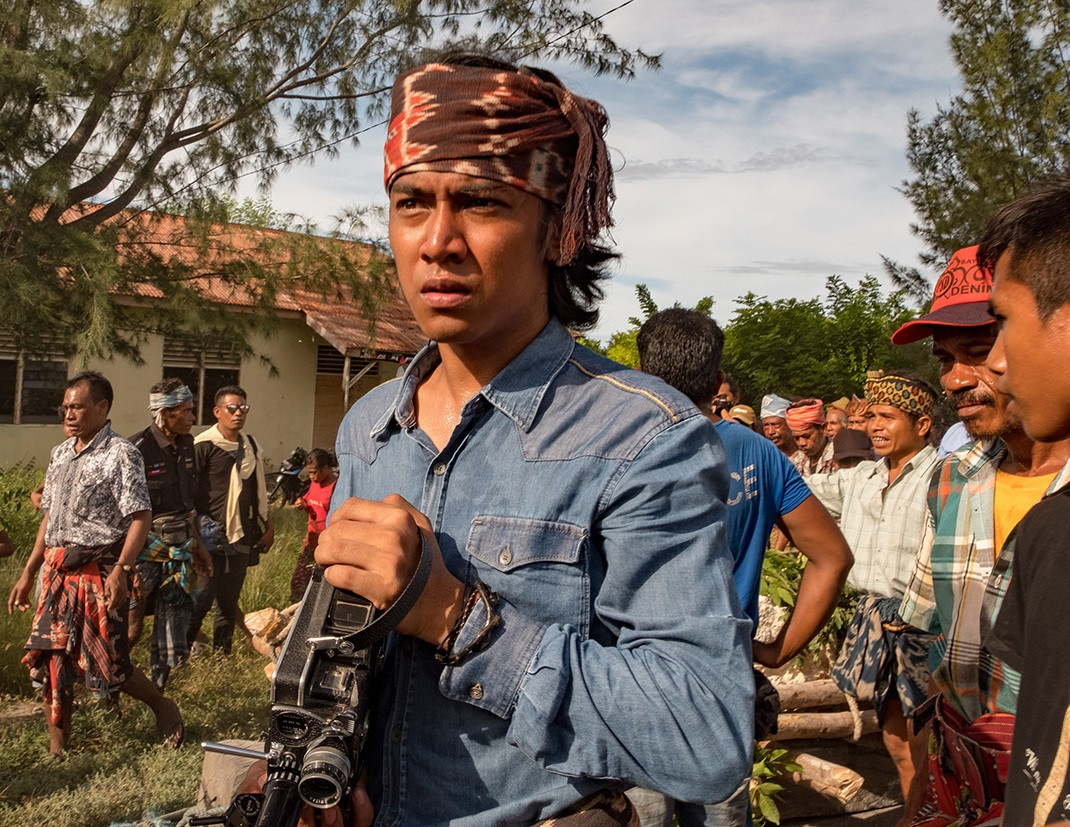Popular Reads
Top Results
Can't find what you're looking for?
View all search resultsPopular Reads
Top Results
Can't find what you're looking for?
View all search results'Humba Dreams': Unearthing social, community issues in Sumba
It may not please everyone with its languid pace and understated storytelling.
Change text size
Gift Premium Articles
to Anyone
F
or the better part of his career, director Riri Riza has explored the beautiful landscape of some of the most exotic places in Indonesia. In Laskar Pelangi, it’s the stunning Belitung. In Atambua 39 Celsius, it’s the hidden paradise of Atambua. With his award-winning Humba Dreams, which was released on Netflix on Thursday, Riri focuses on the magnificent Sumba and its rich culture.
Here’s where it gets interesting. While other films and/or coverage tend to only feature Sumba from its tourism point of view, Riri attempts to put a spotlight on topics that are rarely addressed: the social issues and the dynamic inside the community of Sumba — all told from the perspective of a film student named Martin, played with excellent naturalism by JS Khairen. The result, albeit uneven, is not only a movie that is pleasing to look at but also complex and eye-opening.
When we first meet Martin, he has just arrived in his village of Prailu, Waingapu, after pursuing his dream of becoming a film director in Jakarta for a couple of years. The reason for his homecoming is that his mother wants him to deal with the inheritance from his late father, a box containing a video camera and an unprocessed 16-millimeter film roll. Martin clearly wants to finish this family business quickly as he still has a responsibility to finish a group project in Jakarta. But when the village's shaman informs Martin that she received a message from his father, asking him to process the film roll so people in the village could watch whatever it was that he recorded, Martin had no option but to find the chemical to process the roll.
The movie then follows Martin as he embarks on a journey from one village to another where we’re also introduced to Anna (Ully Triani), a lonely woman whose husband has been missing for 10 years. But while this journey and whether Martin will succeed in his task may at first feel like the main plot, Humba Dreams focuses more on the small details looming throughout the journey. There’s a rich portrayal of the Marapu faith, of how Martin’s deceased father is still kept inside the house. There’s a subtle hint of the poverty and infrastructure gap that the people of Sumba still face. All are approached in an understated way but also sharp.
Riri could’ve easily examined just one issue to make a denser, more focused plot and create some kind of resolution. But to do so would only reduce the complexity of the issues faced daily by Sumba people. Humba Dreams is not here to offer a simplified solution but rather to bring awareness about these real issues to all Indonesians, especially ones outside of Sumba. We may be mesmerized by Bayu Prihantoro Filemon’s impressive cinematography but we can also reflect and start thinking about what we can do to help.
Riri excelled with the visual storytelling of the movie, smartly employing the relationship between Martin and Ana as a perfect metaphor for the people of Sumba and the modern challenges they face. Martin represents this modernity and someone whose culture and faith have been slowly eroded by it while Ana symbolizes the people of Sumba who have to endure the impact of that modernity. The journey for Martin to embark is not just about him finding the chemical but more about him reconnecting with the culture of Sumba and its challenges. It’s through this central relationship that Riri manages to drive home the movie’s main message about the importance of keeping the balance between culture and modernity, the old and the new.
A number of Indonesian movies have addressed the same issues, including the excellent Mouly Surya’s Marlina the Murderer in Four Acts. But to be honest, none have approached the subjects in the way Riri does here, reflective and subtle. That’s what makes Humba Dreams such a unique movie. It may not please everyone with its languid pace and understated storytelling but those who want to witness a visually stunning movie full of wisdom and cultural values, you simply can’t miss this. (wng)











